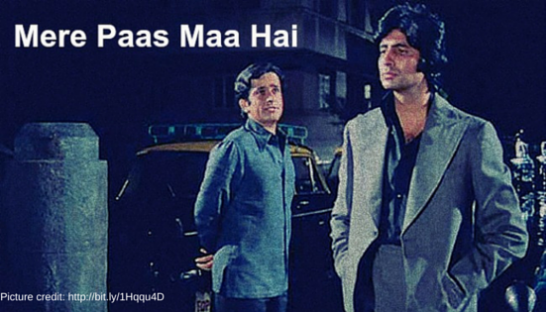One of the uncomfortable truths of India is that we are still a patriarchal society. While murmurs of ‘Beti Bachao’ are rising slowly, news of a male child still calls for more mithai to be distributed. More often than not, this sets the tone for the rest of his lifetime. Now, before you think this piece is going to be a lament of how men have it so easy, ergo we hate them, let me tell you it’s more like ‘men have it so easy, ergo we sympathize with them’. Confused? Let me explain myself.
As the male child grows up, Indian society bestows him with a unique sense of entitlement. He starts life as “mama’s boy”- the devoted son who lets mother control his entire life, right from what he eats to whom he dates. While it is such a major turn-off in itself, the lack of independence speaks of a much larger problem. After the wedding bells chime, we witness what I call the ‘Pallu Syndrome’. They let go of the pallu of the mothers and grab hold of the pallu of the wives. They continue expecting to be waited on hand and foot. However, what seems to be an upper hand is actually their biggest handicap. Ask them to do basic survival chores like cooking and cleaning, and they flounder like infants.
Now, before you think this piece is going to be a lament of how men have it so easy, ergo we hate them, let me tell you it’s more like ‘men have it so easy, ergo we sympathize with them’
Women, on the other hand, automatically learn to cook, serve and tend to others from a young age. All in preparation to become the ideal daughter, daughter-in-law and wife, of course. However, this ability to do things on their own is their greatest strength. Moreover, with glass ceilings being broken across all career paths, financial independence is a given. Today women run houses and offices, while mama continues to buy her son’s underwear. When these two come together in holy matrimony, while he reaches out for her pallu, she has donned her pallazos and has no interest in replacing his mother. In fact, women tell me that they just don’t feel the need to get married because “who wants to take on a liability?”
It is important to talk about this reality and what it means for today’s society. We need to acknowledge that men are not just enforcers, but also victims of this gender stereotype. While women are breaking all norms, his life has not changed as much. He was born with a silver spoon and still expects to be spoon fed. Movies are reinforcing this too, starting from “mere paas maa hain” to the recent Dil Dhadakne Do where the son comes crying to mama the minute his wife asks for a divorce.
Is the Indian man equipped to deal with the new age gender order, or is he collapsing into a crisis of masculinity? As women assert themselves across all walks of life, there is a sense of insecurity and emasculation, which is definitely manifesting in an ugly way – in the boy’s clubs that run the top management in most companies or the high incidence of sexual violence, which is rarely about lust and always about power.
What kind of man would we like to be with? Just someone who has the regular gaadi, bangla and bank balance, or someone who is also independent, mature, supportive and who has his head in the right place? What do women intend to do to cultivate a culture of equality between sexes? When will women learn to let go of their own insecurities by letting go of their husbands and sons?
